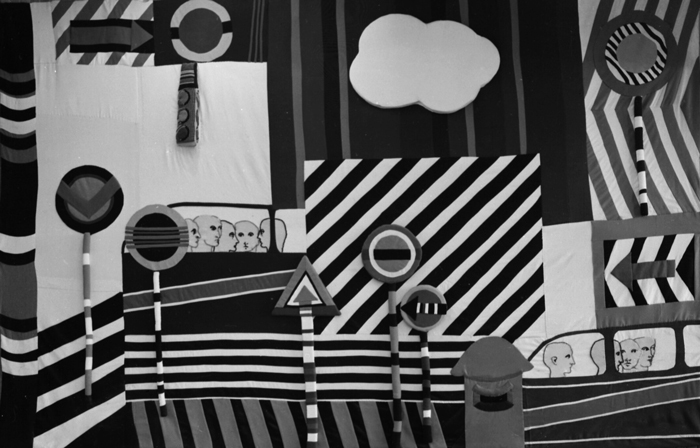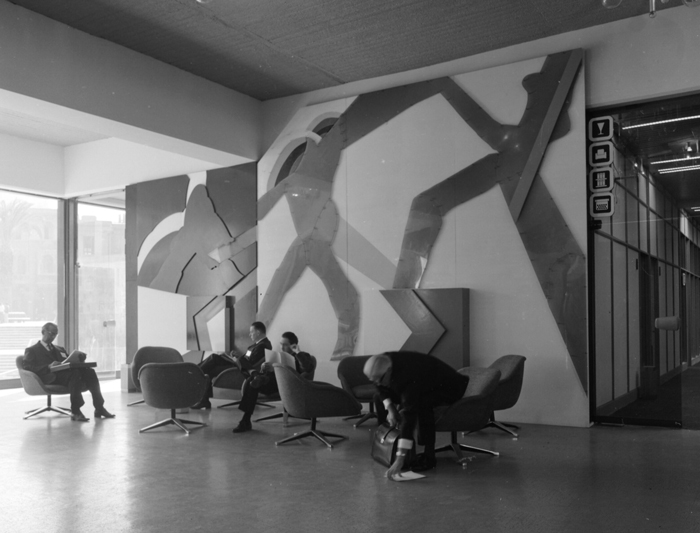
FROM KOLAJ 31
Collages Stolen from UNCTAD III during the 1973 Military Coup in Chile
The history of the Gabriela Mistral Cultural Center begins in 1972, when Chile was chosen to host the United Nations Conference on Trade and Development (UNCTAD III), a historic moment that would put all eyes of the world on Santiago, at the foot of the Andes Mountains. Along with its futuristic architecture, the interior and exterior spaces drew attention for their decor and original art pieces by the most renowned Chilean artists of the moment. More than thirty works of different sizes were placed throughout the building, decorating the conference rooms, meeting areas and plazas. Within this catalog of works, there were several collages.
In Kolaj 31, Marco Antonio Núñez remembers these important cultural treasures and recounts how the art was damaged, looted, and stolen during the September 11, 1973 coup led by Augusto Pinochet Ugarte.
This article appears in Kolaj #31. To see the complete article, SUBSCRIBE to Kolaj Magazine or Get a Copy of the Issue.

These colleges are not simply ornamental. They tell the story of humanity. Their colors reflect its spirit; their lines reflect its concerns; and their scraps reflect its characteristics.

This article appears in Kolaj #31. To see the complete article, SUBSCRIBE to Kolaj Magazine or Get a Copy of the Issue.
Collagist and audiovisual producer Marco Antonio Núñez holds a diploma in “Art and its Territorial Representation” from the Universidad de Santiago de Chile. His work has focused on supporting artistic research in dance and social sciences with a focus on aesthetic and audiovisual documentation. His short documentary Movimiento 360°: Research in Contemporary Dance was selected by CinemaChile for the 2019 Cannes Film Market catalog and was the “upset” winner of the Mala Memoria competition at the Chilean Museum of Memory and Human Rights. He is a founding member of the Centro de Estudios del Collage (CECOLL), featured in Kolaj 30. Learn more on Instagram @marcoestuvoaqui and at www.cecoll.com.
